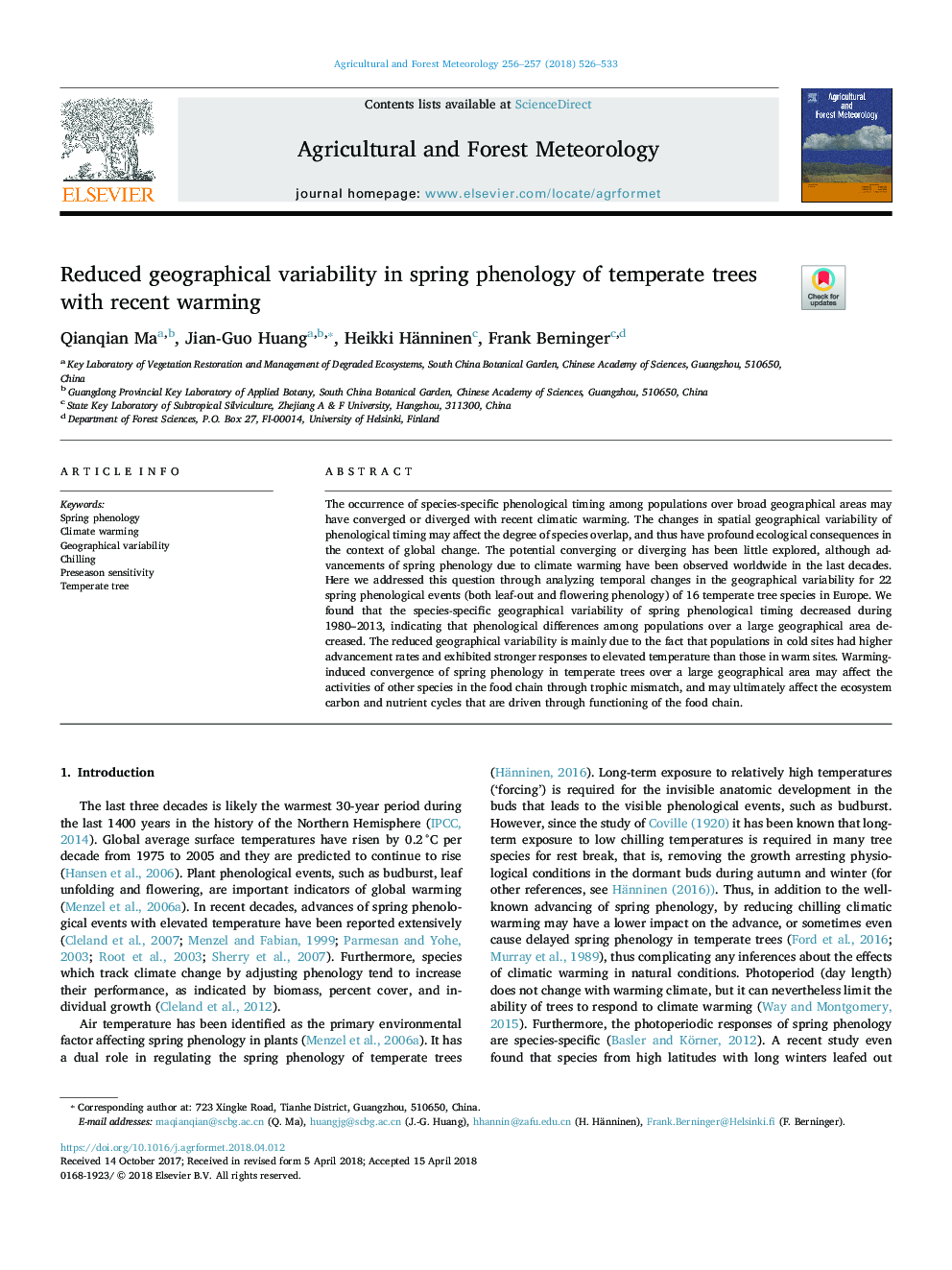| Article ID | Journal | Published Year | Pages | File Type |
|---|---|---|---|---|
| 6536719 | Agricultural and Forest Meteorology | 2018 | 8 Pages |
Abstract
The occurrence of species-specific phenological timing among populations over broad geographical areas may have converged or diverged with recent climatic warming. The changes in spatial geographical variability of phenological timing may affect the degree of species overlap, and thus have profound ecological consequences in the context of global change. The potential converging or diverging has been little explored, although advancements of spring phenology due to climate warming have been observed worldwide in the last decades. Here we addressed this question through analyzing temporal changes in the geographical variability for 22 spring phenological events (both leaf-out and flowering phenology) of 16 temperate tree species in Europe. We found that the species-specific geographical variability of spring phenological timing decreased during 1980-2013, indicating that phenological differences among populations over a large geographical area decreased. The reduced geographical variability is mainly due to the fact that populations in cold sites had higher advancement rates and exhibited stronger responses to elevated temperature than those in warm sites. Warming-induced convergence of spring phenology in temperate trees over a large geographical area may affect the activities of other species in the food chain through trophic mismatch, and may ultimately affect the ecosystem carbon and nutrient cycles that are driven through functioning of the food chain.
Related Topics
Physical Sciences and Engineering
Earth and Planetary Sciences
Atmospheric Science
Authors
Qianqian Ma, Jian-Guo Huang, Heikki Hänninen, Frank Berninger,
